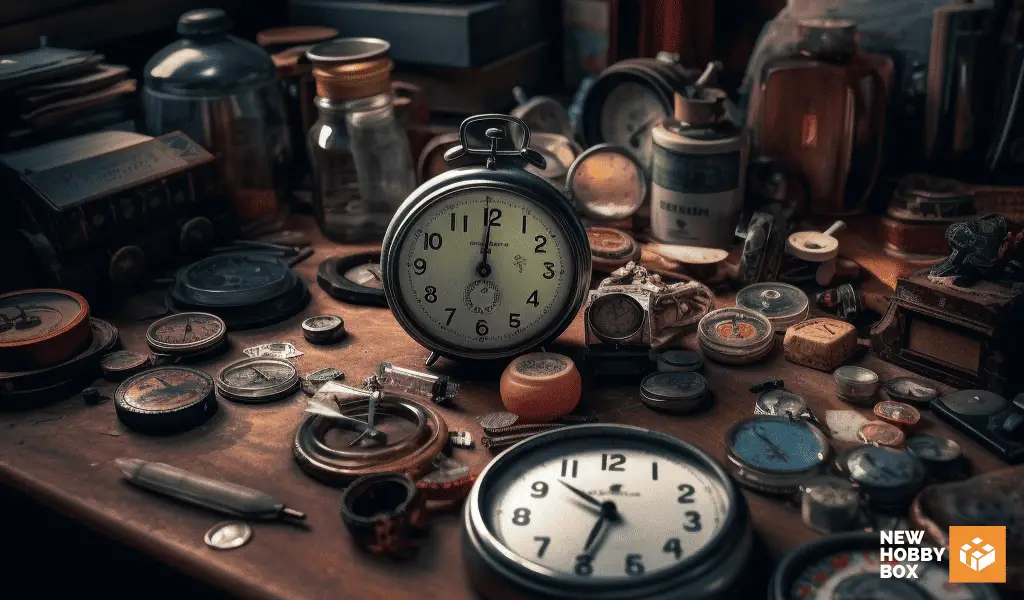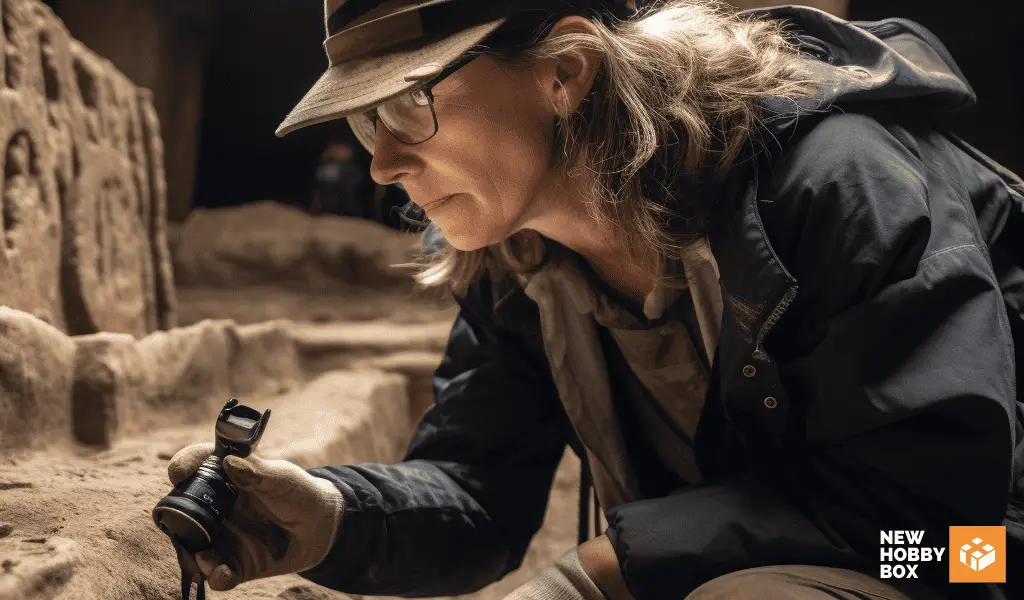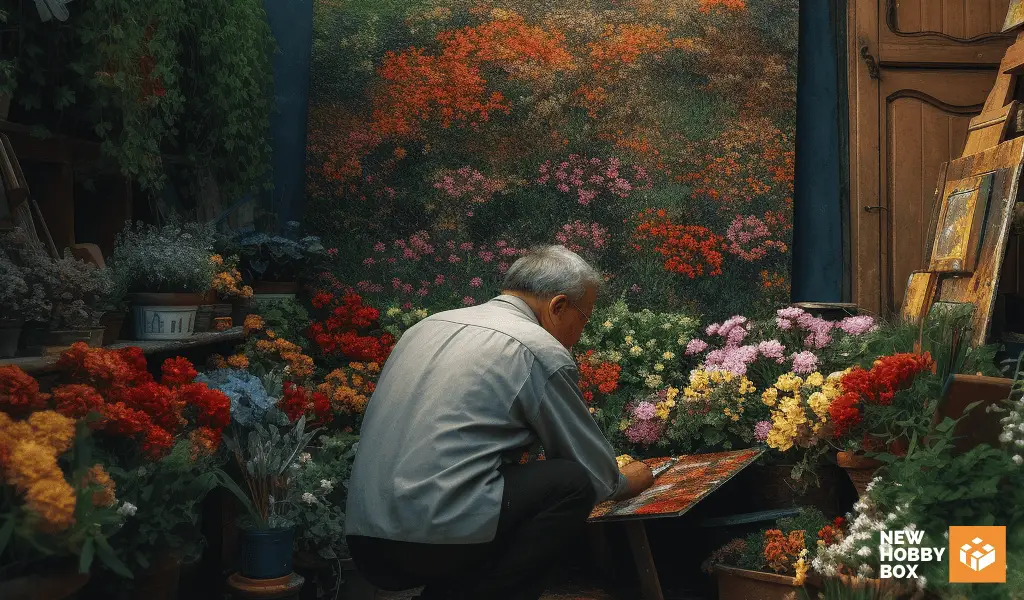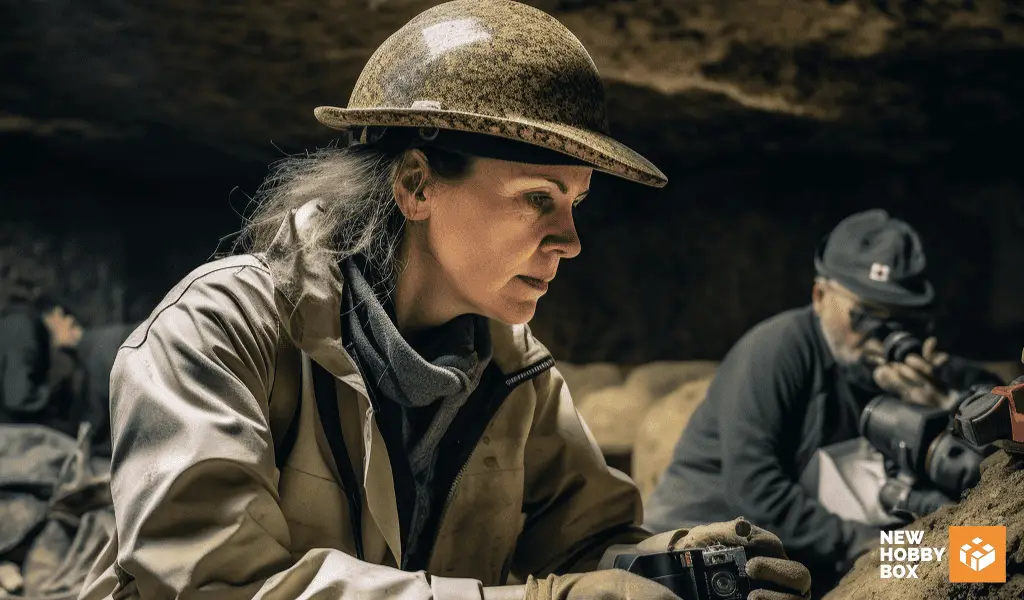
You’ve finally got the house to yourself. The fridge is stocked, movies are on in the background, and you bust out your favorite hobby at the kitchen table. All’s going well until… life happens. The thrill fades, and the hobby gets shelved. Sound familiar? Turns out, we’ve all been there. So, how long do hobbies usually last?
The average lifespan of a hobby is 16 months, with the majority sticking to an activity for 1-5 years. This range reflects the time it takes to explore, learn, and potentially master a new skill. The longevity of a hobby may depend on its complexity and personal dedication.
This article will help you understand the rhythm of engaging in hobbies and offer ways to balance them with your daily busy life. We’re set to inspire you, enlighten you, and who knows, even reignite that dormant hobby spark.
THE SHORT LIFESPAN OF HOBBIES: 4 CONTRIBUTING FACTORS
In 2019, when the British Heart Foundation (BHF) uncovered that most people stick with a hobby for 16 months, their results surprised us and shed some light on why many of us just can’t get a hobby to stick. With the flame of a new hobby burning out after just 16 months, it illuminates a broader societal issue: the competing demands on our time and attention. There are 4 factors at play contributing to your hobby attention deficit, namely your work commitments, busy family life, lack of motivation, and financial burden.

1. Work Commitments and Hobbies
Life in the 21st century often revolves around work, and this has a significant impact on our hobbies. The BHF study identified work commitments as a major reason for hobby drop-off. With demanding jobs often encroaching on our time, hobbies are relegated to the backseat, decreasing the likelihood of long-term commitment. If this is you, and let’s be real – it’s all of us – we’ve created a guide to help you find a way to make time for hobbies even with a full-time job. Be sure to check out how to do this – you owe it to yourself.
2. Family Life vs Hobbies
The hustle and bustle of family life can also impact the lifespan of our hobbies. When juggling kids, chores, and other familial responsibilities, it’s often hobbies that get dropped from the equation. The BHF study found that many respondents let hobbies fall by the wayside in the face of these commitments.
Of course, there’s a way to have your familial cake and eat it too. Doing hobbies and activities as a family is a powerful way to bond with one another, and the hobbies don’t need to be straight out of The Brady Bunch – in fact, we’ve compiled a list of 15 Family-Friendly Hobbies That Don’t Suck. The bigger point here is you can involve your family in your hobby – and reap the benefits as a group.
3. The Motivation Challenge
Then there’s the question of motivation. Starting a new hobby is often exciting, but that initial enthusiasm can quickly wane. The BHF study found lack of motivation to be a critical factor in the short lifespan of hobbies. As the novelty wears off, so does the motivation, leading many of us to move on to the next shiny thing. And the moment you become aware that you’re hobby is starting to feel like a chore and tests your self-discipline is a big warning that this isn’t the hobby for you.

4. The Financial Aspect of Hobbies
Finally, let’s talk about the financial burden hobbies can impose. Whether it’s buying a new guitar or investing in mountain climbing gear, hobbies can be costly. The BHF study noted that financial constraints are another major reason people abandon hobbies. When funds are tight, hobbies are often the first things to be cut from the budget.
But… Somehow college students are able to have hobbies (outside of partying) and we all know that college kids are strapped for cash. Please be aware that you don’t need to dish out cash to have a hobby. Quite the contrary – here are 5 affordable and ridiculously awesome hobbies you can try nearly same-day.
And sure, there are insanely expensive hobbies out there, like collecting cars or corrosion casting – any of the 12 hobbies on our most exotic list will bankrupt you. That’s beside the point though. Hobbies aren’t just about spending the most or killing time; they’re about enhancing our lives. That’s why they’re worth giving them the attention they deserve.

THE IMPORTANCE OF HOBBIES IN MODERN LIFE
Hobbies add flavor to our otherwise monotonous routines. And in our fast-paced lives that are blinded by the blue lights of screens, hobbies aren’t just about pastime, they play a significant role in our overall well-being. A favorite hobby can bring joy, become a source of relaxation, and act as a gateway to personal fulfillment – even when surrounded by demanding chaos elsewhere. Simple replacements can work wonders. For instance, replacing stress with tranquility through painting or learning to make candles with a friend. Hobbies provide an escape from stress, facilitate socializing, and stimulate the mind.
Hobbies also serve as a mental stimulant. Whether you’re tackling a challenging puzzle or exploring new chords on the guitar, you’re sharpening your mind. Many encourage creative thinking, improve memory, and even offer the chance to develop new skills.
So, you might ask, “How long does it take to dive into a new hobby?” Good news – it’s often quicker than you think.
How Long Does It Take to Start a New Hobby?
Starting a new hobby typically takes about 20 hours of practice. This time frame allows one to grasp basic skills and understand the essence of the activity. It’s key to remember that deep mastery of any hobby requires a longer commitment.
Embracing a new hobby can be as simple as picking up a pen, a spatula, or a yoga mat. The essential part is taking the first step, and with enthusiasm and consistency, you can immerse yourself in a new hobby in no time. Whis why goal-setting can be so powerful in progress if that’s what you want. If you’re trying to stick with a hobby longer than 16 months, as you embark on your new hobby journey, consider setting goals to enhance your engagement. Participating in charity events, for instance, can add a fulfilling dimension to your hobby. If you’ve taken up running, something like joining a charity marathon would be a great target. It’s about making your hobby more than just an activity – it’s a way of giving back.

OVERCOMING OBSTACLES TO HOBBY CONTINUITY
Even if most of us take up a new hobby with the highest ambition and the greatest of intentions, unfortunately, like most things in life, this fervor will most likely gradually diminish. It’s a sad reality, but that’s life. It leads to interruptions in hobby continuity. The culprits? Lack of time, shifting interests, financial constraints, or even an inability to see visible progress.
This doesn’t mean you have to give in though – as overcoming these hurdles is far from impossible. It begins by implementing a well-structured plan, establishing realistic goals, and focusing on the enjoyment of the process rather than perfection can help reignite that initial spark and restore continuity to your hobby journey.
So, just how much time should you commit to your hobby each week?

How Many Hours a Week Should You Dedicate to a Hobby?
Dedication to a hobby should be approximately 7 hours per week, or around 1 hour each day. This commitment optimizes cognitive health, reducing the risk of dementia according to studies. Consistency in engagement is key for benefits.
We’re here to tell you that understanding how long a hobby lasts is not just trivia – it’s a gateway into significant importance for your well-being, particularly in terms of cognitive health. Research has shown that a lower risk for dementia is associated with engaging in a greater number of activities and committing to hobbies for a high amount of time (about 1 hour each day) compared to a low amount of time (less than 30 minutes each day). Knowledge is certainly powerful, right?
The answer, though, isn’t one-size-fits-all and your ideal hobby time depends on schedule, the nature of the hobby, and personal aspirations. But in general, if you can dedicate about 5-10 hours per week to your hobby can provide a satisfying balance between hobby indulgence and other life commitments. This time allocation ensures that your hobby doesn’t become a chore, but rather a refreshing diversion from the daily grind.

ACHIEVING A BALANCED AND ENRICHING EXPERIENCE
Striking the right balance in hobby commitment can transform an otherwise mundane routine into an enriching experience. A hobby shouldn’t be another item on your to-do list, but rather an avenue for personal growth, stress relief, and creative expression. By prioritizing your hobby, setting achievable goals, and dedicating consistent, quality time, you can turn each hobby session into an opportunity for self-discovery and self-improvement.
After all, the key to hobby satisfaction is less about the hours clocked and more about the joy experienced. Let the journey to a more balanced and fulfilling hobby experience begin.
Happy Hobbying,
